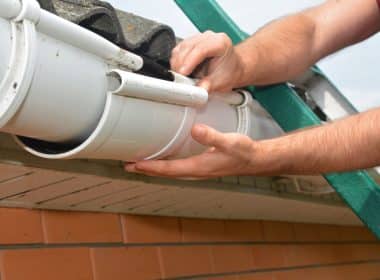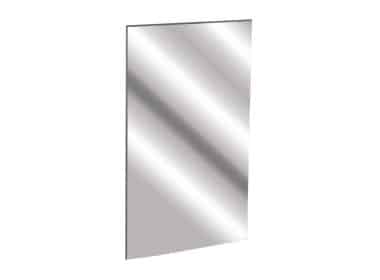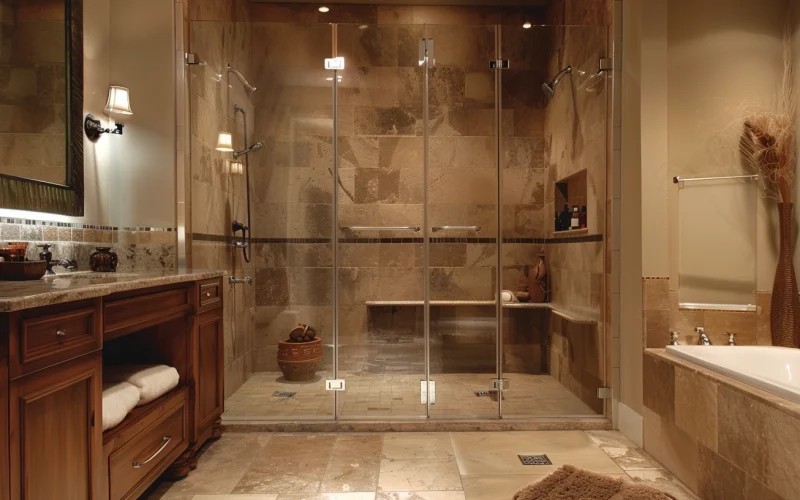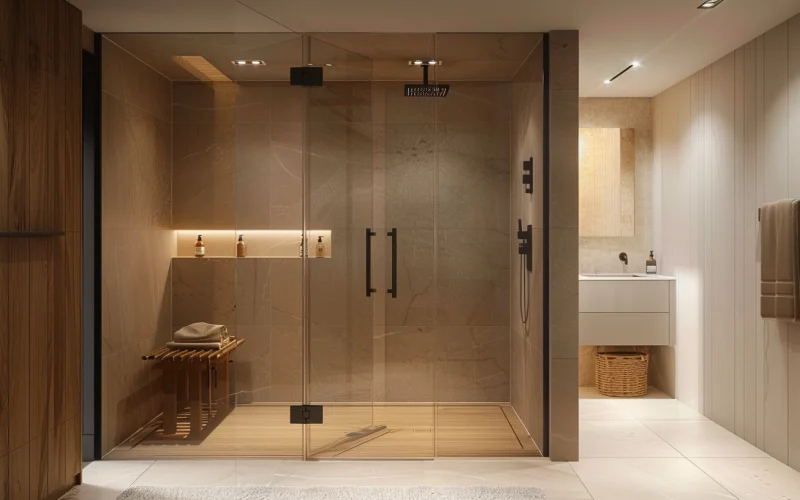When it comes to modern bathroom design, frameless shower doors have gained significant popularity as a sleek and minimalist option.
Many homeowners consider them the best shower doors due to their aesthetic appeal and spacious feel.
However, before deciding, it’s crucial to consider the advantages and disadvantages of frameless shower doors.
In this post, we’ll explore the potential drawbacks to help you determine whether frameless shower doors are the best choice for your bathroom renovation.
Features of Frameless Shower Options
Frameless shower doors have gained popularity in recent years due to their sleek and modern appearance, which can greatly enhance a bathroom’s overall aesthetic.
These doors are made of thick, tempered glass held in place by minimal hardware, creating an unobstructed view of the shower area.
One of the main advantages of frameless shower doors is their ability to make a bathroom feel more spacious and open.
The absence of bulky frames and clear glass allows light to pass easily, creating a bright and airy atmosphere.
This is particularly beneficial for smaller bathrooms, as it can help create the illusion of a larger space.
They can be customized to fit any shower size or shape, and the hardware can be selected to match other bathroom fixtures, such as faucets and towel bars.
Some additional benefits of frameless shower doors include:
- Easy to clean and maintain, with fewer crevices for mold and mildew to grow
- Durable and long-lasting, thanks to the tempered glass and high-quality hardware
- It provides a timeless and sophisticated look that can increase the value of your home
However, this is not the true picture of how the frameless shower might turn up in your favor.
Other negative factors lower the overall prominence of this door as an installation option, making it worthy of your consideration.
This section will discuss a few drawbacks of this door as an option for your next home renovation project.
1. Higher Cost
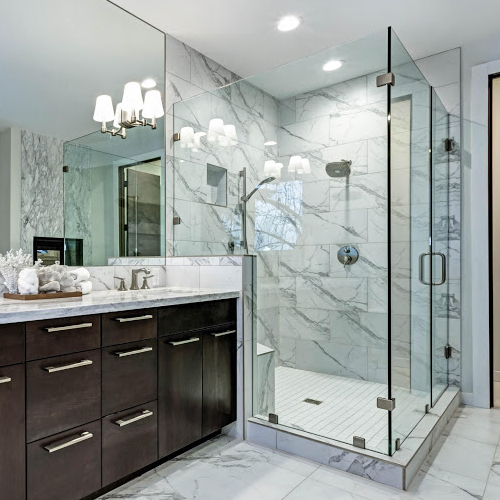
One of the most significant cons of frameless shower doors is their higher cost than framed alternatives.
The increased expense is due to the thicker tempered glass, custom installation, and specialized hardware required for frameless doors.
On average, frameless shower doors cost 20-30% more than their framed counterparts.
Homeowners on a tight budget may find this cost difference challenging to justify, especially if they have a large shower area to enclose.
2. Installation Challenges
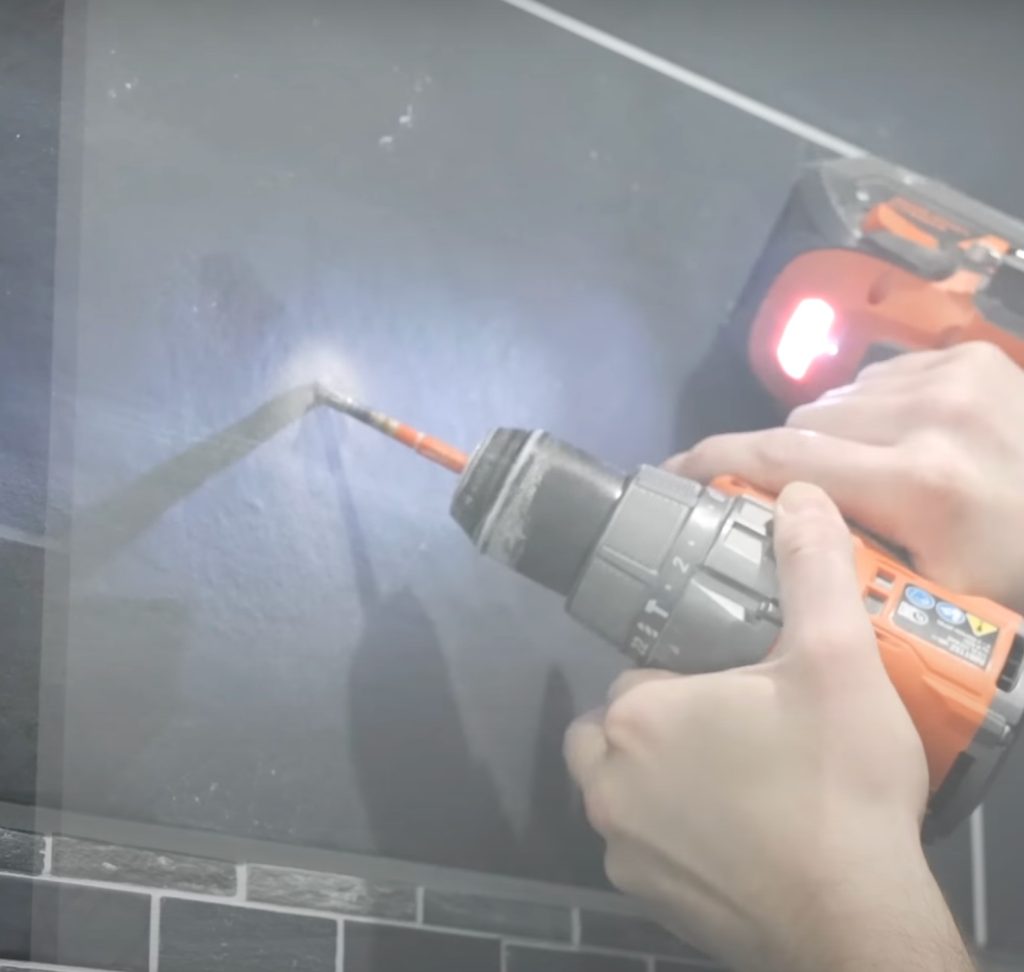
Installing frameless shower doors is more complex than installing framed doors.
The absence of a frame requires precise measurements and skilled installation to ensure proper alignment and a watertight seal.
Even minor discrepancies can lead to leaks, drafts, or structural issues. As a result, professional installation is highly recommended, which further adds to the overall cost.
Improper installation can cause significant damage to your bathroom, leading to costly repairs down the line.
3. Maintenance and Cleaning
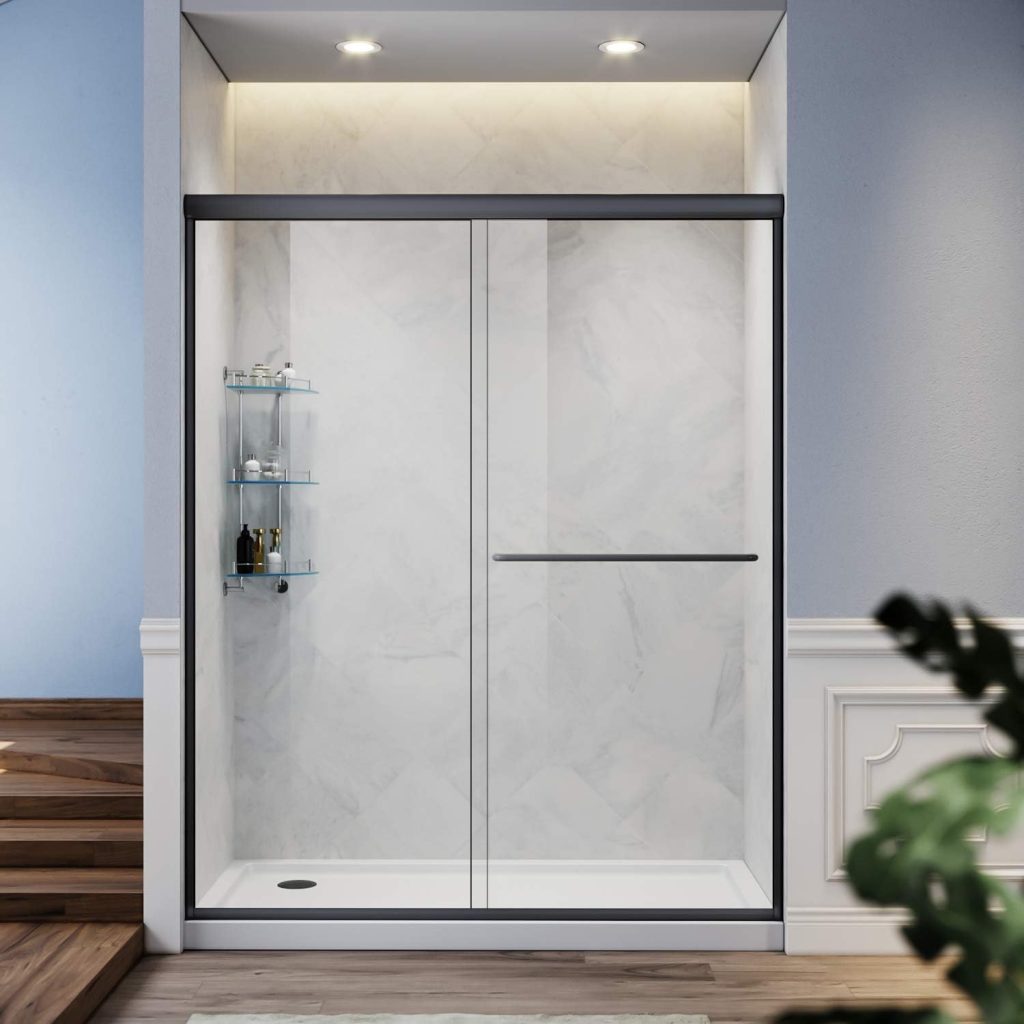
While frameless shower doors offer a clear, unobstructed view of your shower, they also require more frequent cleaning to maintain that pristine appearance.
Without frames to conceal water spots, soap scum, and mineral buildup, these blemishes become more visible on the expansive glass surface.
Regular wiping and squeegeeing are necessary to prevent the accumulation of grime and keep the glass looking clean and transparent.
Adding maintenance may be a drawback for homeowners who prefer a low-upkeep bathroom.
4. Lack of Privacy
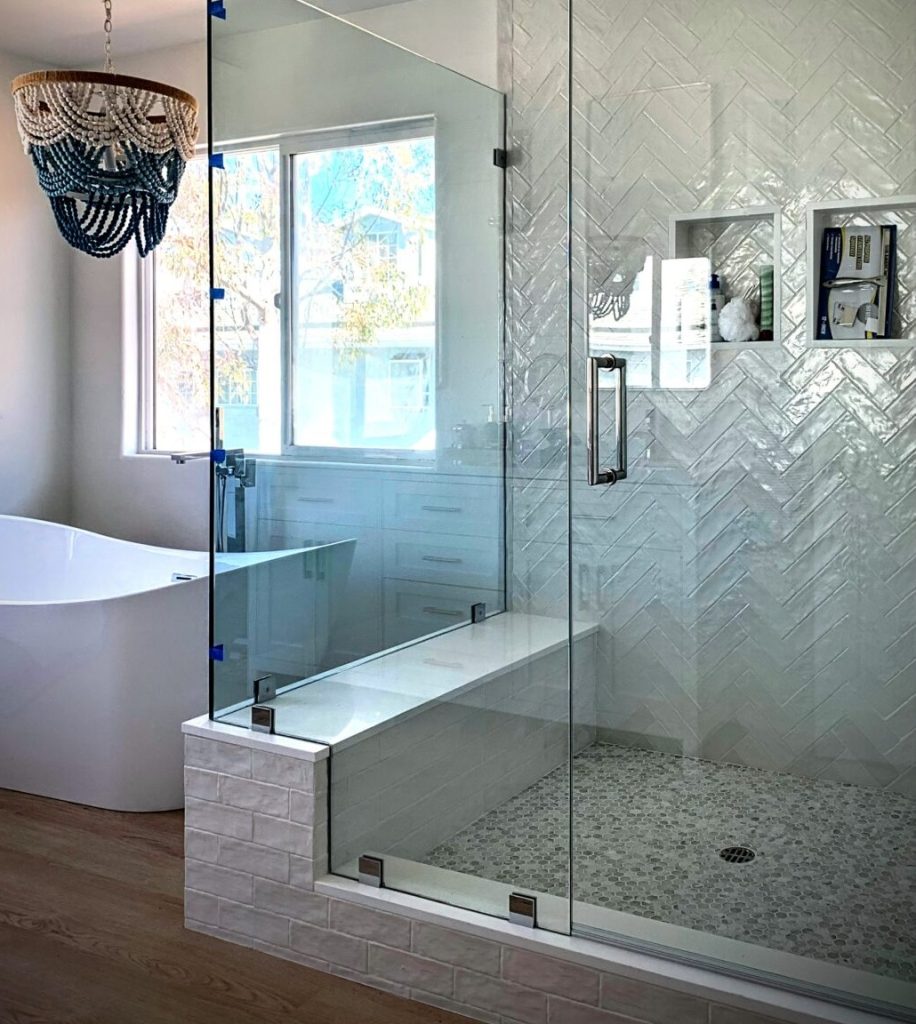
Frameless shower doors provide a clear view into the shower area, which may not be ideal for everyone.
The absence of frames or frosted glass panels means less privacy than framed doors or shower curtains.
This lack of privacy can concern individuals who value a more intimate showering experience or shared bathrooms where multiple people use the space.
If privacy is a priority, frameless shower doors may not be the best choice.
5. Fragility and Durability Concerns
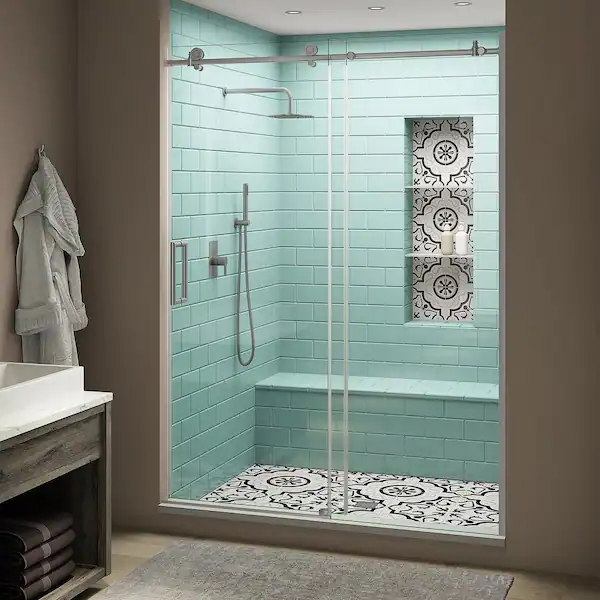
Although frameless shower doors use tempered glass, they are still more fragile and prone to shattering than framed doors.
The lack of a supportive frame stresses the glass, increasing the risk of breakage if accidentally hit or bumped.
In the event of glass shattering, the absence of a frame also increases the likelihood of injury from falling shards.
While rare, this risk is worth considering, especially in households with children or elderly individuals.
6. Limited Design Options
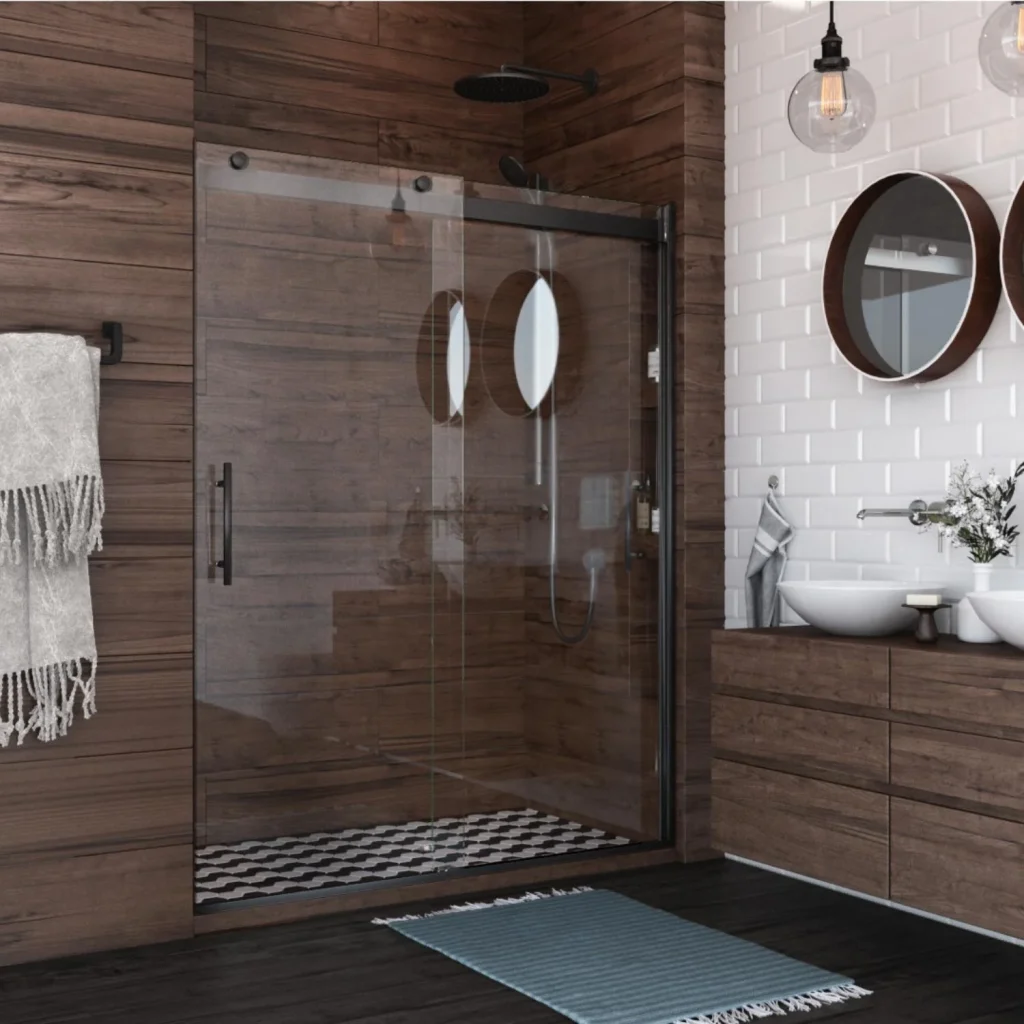
Frameless shower doors offer a sleek, minimalist look but may not offer as many design options as framed doors.
The absence of frames limits the variety of hardware finishes, glass patterns, and customization possibilities.
Frameless doors may be restrictive for homeowners who want to match their shower doors with specific bathroom fixtures or incorporate intricate designs.
The simplicity of frameless doors may not complement every bathroom style or personal taste.
Conclusion
While frameless shower doors are often considered the best due to their modern and spacious appearance, they have several drawbacks.
The higher cost, installation challenges, increased maintenance, lack of privacy, fragility concerns, and limited design options are all factors that homeowners should weigh carefully before deciding.
Ultimately, the best shower doors for your bathroom will depend on your needs, budget, and design preferences.
By understanding the potential cons of frameless shower doors, you can make an informed choice for your bathroom renovation that balances style, functionality, and practicality.


